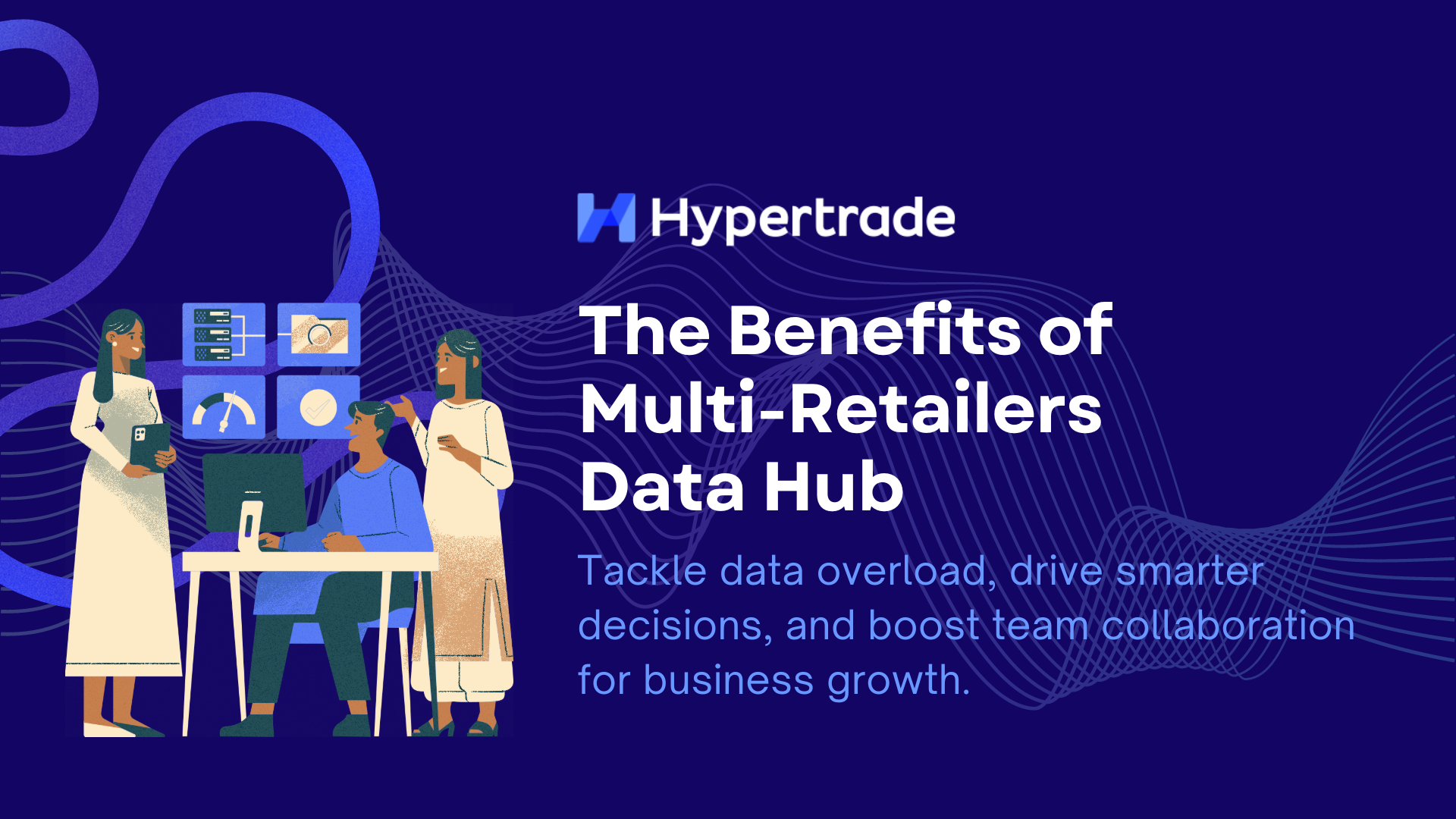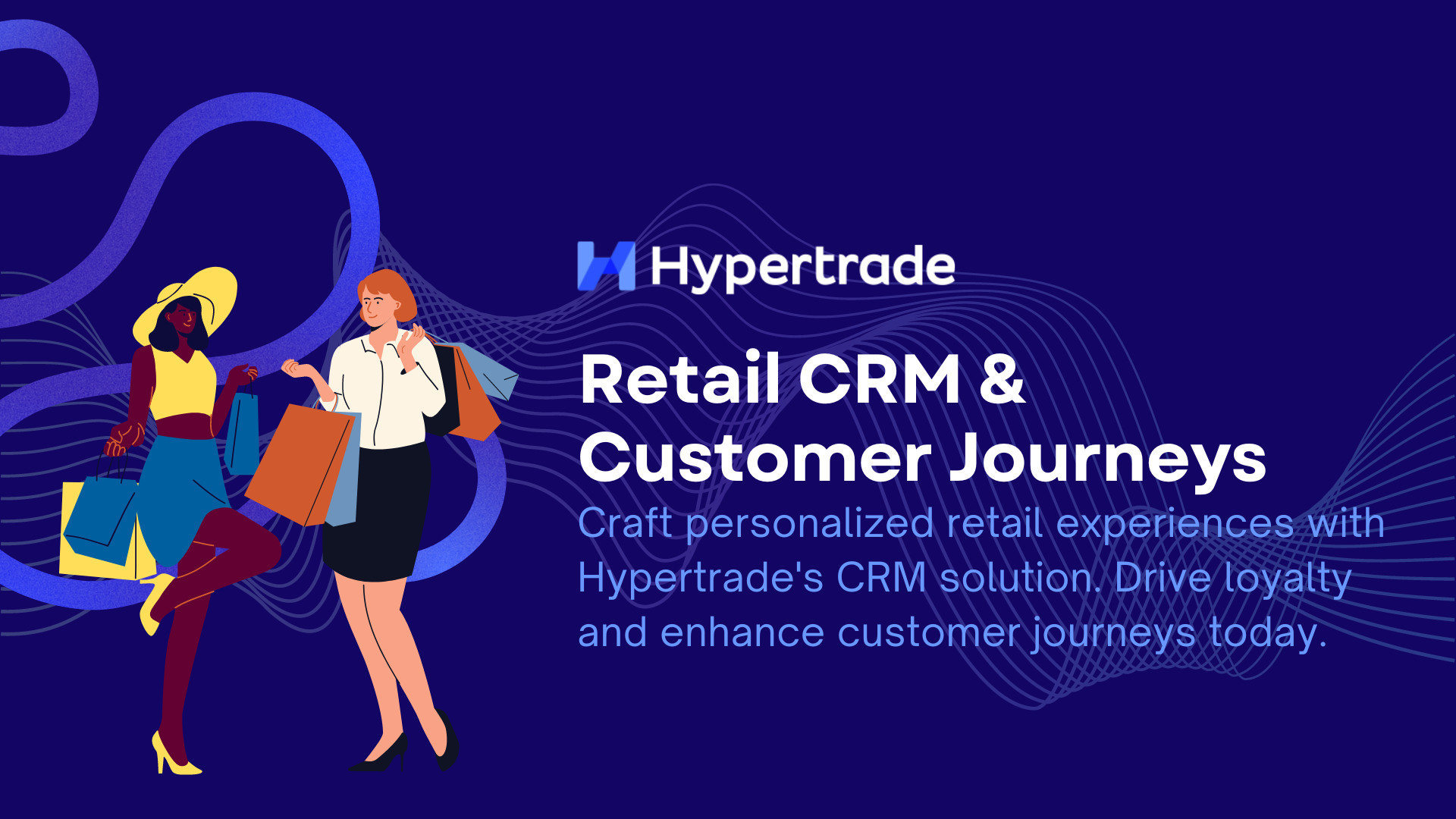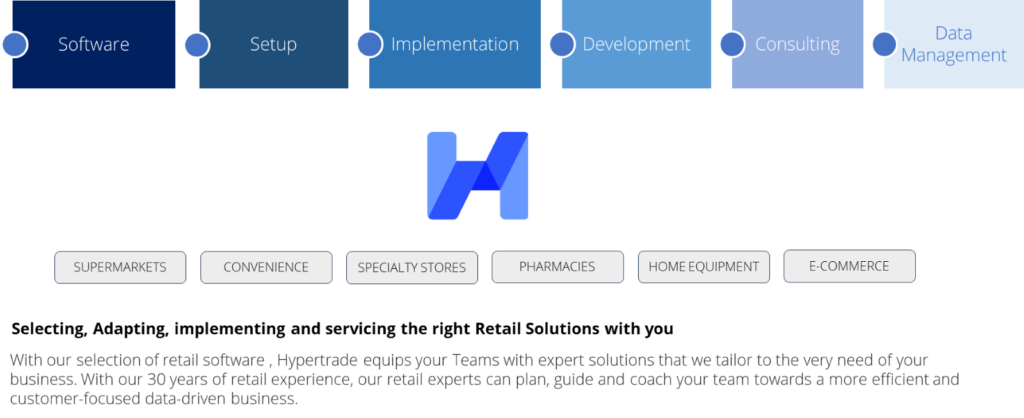Customer relationship management (CRM) is a strategic approach to managing customer interactions and data throughout the customer lifecycle. It involves using technology to organize, automate, and synchronize business processes, including marketing, sales, and customer service. CRM can help retailers to better understand and meet the needs of their customers, and ultimately drive increased sales and profitability. Here are five steps for implementing CRM at a retail organization for a company that has already selected its Retail CRM system.
Step 1: Define Business Goals and Objectives
Though it seems obvious, this first step is by far the most difficult one. It is about defining the business goals and objectives that the CRM team will support. This might include increasing sales, improving customer retention, and optimizing marketing and sales efforts. By defining clear goals and objectives, retailers can better understand the specific needs and challenges that the CRM Team will need to address.
To achieve the business goals and objectives, it will also be the opportunity to define the CRM team:
- Role & Responsibilities
- Assessment metrics
- Decisions Scope
- Authority Level
Step 2: Gather Customers Data
The level of data gathered depends on the technology advance the company is ready to implement. In a first phase, we recommend gathering sales record and basics customer data. In a second phase, when the company is ready to extend its CRM systems to a Customer Data Platform level (CDP), social media interactions, Customer Service and Surveys data can also be added1. The information will help gain insights into consumer behavior and preferences and use this information to tailor their marketing and sales efforts to meet the needs of their target customers.
Step 3: Become Legally Compliant
In addition to collecting and using consenting Customers data, it is legally critical to setup a Data Controller and define data access rules (who can access the data and for what purpose), storage rules (where are the data store and what are the data security systems in place) as well as data breach procedures (what needs to be done in case of a hack or data breach)
Step 4: Build the CRM Team’s Budget
The CRM team’s expenses include the following:
- Recruitment, salaries & benefits
- Customers Acquisition costs
- 1 By law, consents from customers must be obtained to collect, store and use their data. Most countries are using the GPRD model.
- Solutions to continuously improve Shopper Engagement – hyper-trade.com 2 | P a g e
- Customers Retention Costs
- Planned Campaign Costs
- Unplanned Campaign Cost (to accelerate spending or frequency)
- Systems Costs (CRM systems, Big Data Engine, CDP…)
- Social Media Costs
- Communication Costs (including in store)
Step 5: Position the CRM Team in the organization
Depending on each company’s available resources and maturity level, several options are possible
Option 1: CRM Team reports to Marketing
This is the most frequent case. It requires the Marketing Senior Leadership to be familiar with CRM, agile with data and metrics and possess a reasonable level of strategic thinking.
Option 2: CRM Team reports to Merchandise
This is an alternative solution when the Marketing Leadership is not ready yet. In this solution, one has to be aware that Merchandise de facto becomes Judge and Jury on its decisions concerning Customers strategies, the biggest trap being to transform CRM in a predominantly monetizing vehicle.
Option 3: CRM Team reports to CEO
While CEOs are already busy with so many other topics to drive, this is, in our opinion, the most reliable and efficient alternative in the case where no suitable Marketing Leadership is to be found. It guarantees the neutrality of Customers Strategies, protects from to much suppliers influence and supports operations and supply chain fully.
Option 4: CRM Team reports to an external party
This solution can only be temporary until a suitable Marketing Leadership can be found. This option also guarantees neutrality, execution and efficiency.
Step 6: Build the Team
At its starting point, the CRM Team needs at least 1 manager and 2 executives.
CRM Manager Profile: 6 essentials skills
Strong analytical skills: A retail CRM manager should have strong analytical skills and be able to analyze customer data and market trends to identify opportunities for improvement and inform CRM strategies.
Leadership skills: A retail CRM manager should be a strong leader who can motivate and manage a team of employees and work effectively with other stakeholders, such as marketing, merchandise, operations and supply-chains teams.
Strategic thinking: A retail CRM manager should have strong strategic thinking skills and be able to develop and implement long-term CRM plans that align with the business goals and objectives of the organization.
Communication skills: A retail CRM manager should have excellent communication skills and be able to clearly articulate CRM strategies and recommendations to other stakeholders, as well as effectively listen to and incorporate feedback from employees and customers.
Technical skills: A retail CRM manager should have a good understanding of CRM technologies and be able to effectively use CRM systems to organize, automate, and synchronize business processes.
Customer-focused mindset: A retail CRM manager should have a customer-focused mindset and be able to anticipate and meet the needs of customers to drive increased satisfaction and loyalty.
CRM Executive
The CRM executive should have excellent analytical skills and communication skills
Step 7: Establish the Team in the Organization
Establishing the Team in the organization is achieved by performing the following tasks:
- Define the routines & reporting tasks of the CRM Team as well as its decisions scope
- Introduce the role & responsibilities of the CRM team to other Business Units and the benefits they will gain
- Explain to other teams what actions are needed when receiving CRM’s data and insights
- Build the official communication channels between the CRM Teams and other units
- Officialize the CRM Team’s budget with Finance Team
- Decide which Teams can access to what insights with what type of decisions scope
- Solidify all CRM related interactions with Suppliers (Marketing, CRM and Merchandise: who does what? how do they inform each other? what are the business rules to be respected?
Depending on the CRM goals and business objectives (see Step 1) and each company’s specific organisational structure, some tasks can be added or deleted
Step 8: Train the CRM Team
Continuous training on the selected Retail CRM system should be in place, to ensure the Teams is aware of what can be done, what cannot be done and what are the walk arounds.
A clear communication between the CRM Team and the Retail CRM system service provider will also enable the provider to give better guidance.
Step 9: Train the Other Teams
To avoid useless emails and accelerate agility, all divisions concerned by the CRM Team data and customers insights should have a protected and defined access to the retail CRM system. These teams must be trained both on the tool itself, and on how to read data and be able to connect data reading and actions.
The training should be articulated around the agreed shared data and decision-making rules and responsibilities.
Step 10: Include CRM Insights in the Executive Committee
By setting up a CRM full fledge team, the company asserts its willingness to put Customers at the centre of its business. From strategic, operational and performance perspectives, CRM should be participating in the Excom meetings not only to share performances, but also to provide their strategic and tactical recommendations.
What solutions will you probably have to find
Inserting a new cog in any mechanism often carries it share of challenges. The challenges described below happen the most frequently
Conflict of Interest with Merchandise
The conflict will arise first on the Assortment:
- Merchandise Team often make written or non-written agreements with Suppliers
- Merchandise teams will have difficulties in accepting the data-driven recommendations
- Merchandise will have difficulties in executing the actions recommended by the CRM Team
Conflicts will also arise on Promotion:
- Merchandise will defend their promotion items choices based on written or non-written agreements with Suppliers
- Merchandise teams will have difficulties in negotiating the promotions suggested by the CRM Team
- Merchandise will argue on the CRM Campaign fees negotiated with Suppliers
- Merchandise and CRM Team might have different views on the number of campaigns and the maximum number of times a (consenting) customer can receive a campaign by month
- Merchandise and CRM might have different views on promotion sales forecast, especially if the promotion business model limits the quantity sold
The solution: layout all the concerned business rules in advanced and review them regularly for adjustment when necessary. Additionally, the setup of a CRM Team is a good opportunity to review existing Vendor Management Policies, or establish them if they don’t exist yet.
Conflict of Interest with Operations
- For the most popular items display guidelines, it is not rare that Operations asserts a better local knowledge and understanding of its catchment area’s customer knowledge
- For the Loyal Customers sales contribution, stores with a low contribution will often complain about a lack of marketing budget (store decoration and signage)
The solution: for Housewife basket, jointly decide of the scope to be integrated for the calculation and agree on a planned performance review. For the sales contribution, the in-store communication budget should be decided in the CRM Team’s budget (see step 4)
Conflict of Interest with Supply Chain
Direct conflict with supply chain is rare. They mostly occur when the promotion or campaign ordered quantities are very different from the sales forecast. If Merchandise is the Business Unit that validates quantities, then the conflict will be with them.
The solution: layout all the concerned business rules in advanced and review them regularly for adjustment when necessary.
Conflict of Interest with Finance
Conflicts with the Finance Department arise mostly in 2 areas:
- Budget: the spending is over budget
- Margin: CRM operations do not generate the margin target
The solution: For Budget, CRM should be subject to the same established budget management rules as other Business Units. These rules should include the exceptional situations when Senior Leadership requests for additional campaigns to boost basket and traffic.
For the margin issue, the solution goes to a higher organisational concern: who is responsible for gross margin. The established rules should apply to CRM events.
Conflict of Interest with Marketing
Conflicts with the Marketing Department arise mostly in 2 areas:
- Communication Plan: depending on the business and sales situation, the CRM Team will, often, create campaigns or events that are not planned
- When joined marketing operations are created, CRM and Marketing might disagree on the suppliers’ budget and its allocation
The solution: The solution: layout all the concerned business rules in advanced and review them regularly for adjustment when necessary.
Retail CRM System Mapping: an Example Overview

Learn More about Retail CRM
- How to setup a CRM Team at a retailer
- Retail CRM Top 10 business Benefits
- Retail CRM Glossary
- CRM Persona & Personalization
- How CRM impacts the entire Customer Experience
- Why Post Campaign analyses are more important than campaign results
- 4 ways to Maximize Campaign Results
Contact us to get the White Papers you are interested! I want to learn more about Retail CRM







